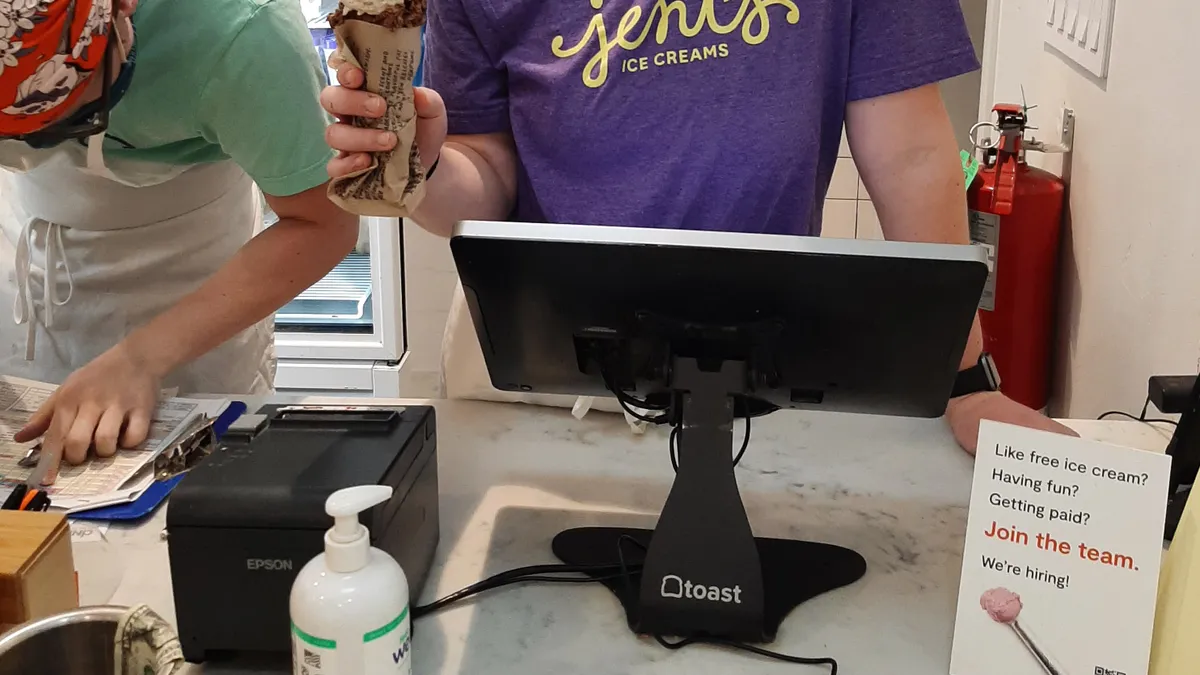Dive Brief:
- The restaurant payments software company Toast added some 6,000 locations to its client set during the second-quarter, for the biggest quarterly increase in its venues since it launched the service in 2012, according to an earnings report this week. That boost allowed for a 40% increase to about 68,000 locations.
- The company increased its forecast for revenue growth this year, but executives declined during a call with analysts on Thursday to provide any timetable for when Toast will become profitable.
- Toast has narrowed its losses this year, logging a $77 million loss for the first half of the year, compared to $234 million for the first half of 2021, according to its second-quarter earnings release issued Thursday. Revenue nearly doubled for the first half of the year to $1.2 billion, up from $707 million, the company said in the release.
Dive Insight:
Toast’s expansion comes despite a slew of competition jumping into the restaurant payments arena during the past few years, as the COVID-19 pandemic changed up the way restaurants cater to their customers. Among the larger rivals are NCR and Oracle, but the fintech Square, owned by Block, and SpotOn are also in the market.
In one example of how Toast is spreading its sales footprint, Toast added 40 Jamba Juice locations during the quarter in an expansion of that now puts the company’s devices at about 700 of the juice bar’s outlets, Toast CEO Chris Comparato said on the second-quarter earnings call with analysts.
At the same time, Toast isn’t losing customers, the CEO said. “Customer churn remains low,” he said.
Boston-based Toast is expanding its offerings too, and made strides on that front earlier this year with its acquisition of Sling, which provides an employee scheduling software system aimed at helping restaurants more efficiently use their staffs.
That has become even more important in an economic climate in which restaurants are sometimes struggling to hire workers and paying them higher wages. Toast has sought to respond to a shift in which restaurants are seeking digital tools to drive efficiency and staff productivity, including automation in the back office.
“Restaurant are facing challenges,” Comparato said on the earnings call. “Labor and food are the two biggest expenses for restaurants and the current environment has amplified the pressure on both.”
Despite the threat of a recession, consumer spending on restaurants hasn’t slowed as far as Toast results indicate through July, the company’s executives said on the call.
Toast’s expansion was across the U.S., with no particular areas of concentration, they said. The company is still committed to international expansion and its initial efforts on that front this year have set the foundation for a more significant build-out later, they added.











